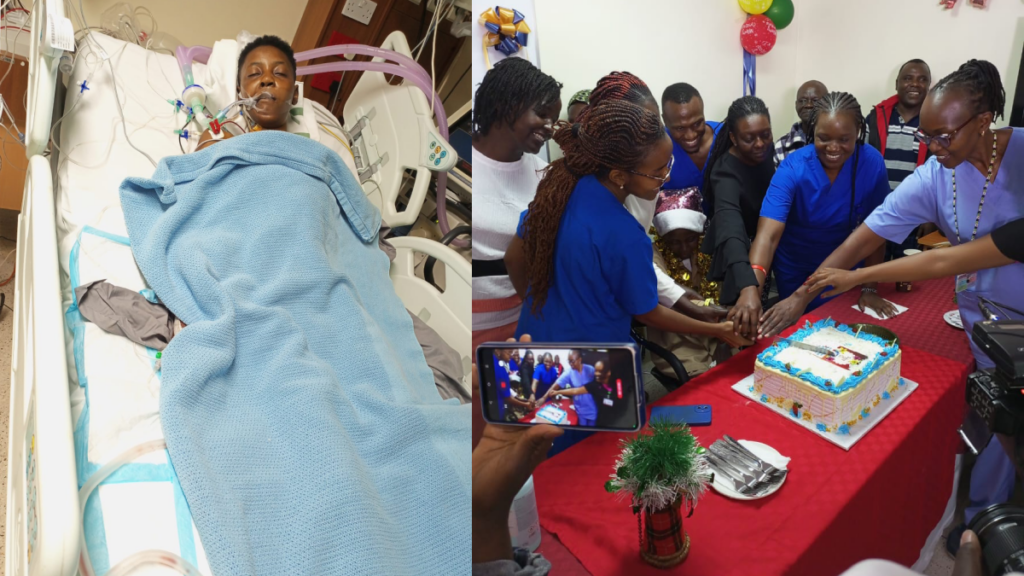When 27-year-old Caroline Wakanyi was told she had only 15 days to live, her world collapsed. What began as a seemingly harmless sore throat years earlier had silently evolved into Rheumatic Heart Disease (RHD), a condition that damaged her heart valves beyond repair. After years of misdiagnoses and mounting despair, her final hope rested on a hospital bed in Nairobi, where her story would take an extraordinary turn.
Caroline’s health began to deteriorate in March 2021 with symptoms she didn’t associate with heart disease. Over time, her condition worsened as she was shuffled between facilities without a clear diagnosis. By October 2023, two of her heart valves were irreversibly damaged, and the required surgery cost over Ksh 1.6 million far out of reach for many. The doctors warned she had just 15 days to live.
But in the midst of fear came a breakthrough. A team of specialists evaluated her case and decided to proceed with high-risk open-heart surgery. On October 23rd, the surgery took place. Yet just hours later, disaster struck Caroline went into cardiac arrest, flatlining twice. Her chest was reopened in the ICU, and she was placed on a life-support machine known as ECMO (Extracorporeal Membrane Oxygenation), which took over the work of her heart and lungs.
The following days were a blur of uncertainty. Caroline remained unconscious for 40 days, battled severe infections, and experienced memory loss and dramatic weight loss. Her body was weakened, but her will remained strong.
In a miraculous turn of events, Caroline regained consciousness. Slowly, she began to recover breathing steadily, speaking clearly, and eventually walking again. Her journey from the brink of death to renewed life is nothing short of remarkable.
Caroline’s case underscores a critical message: Rheumatic Heart Disease is preventable. It often begins with a sore throat caused by streptococcal bacteria. With early detection and a simple penicillin injection, RHD can be stopped before it starts. Monthly penicillin injections and medication can manage the disease and prevent complications.
Her story is not just about survival it’s a public health wake-up call. Prevention, awareness, and early intervention can save lives. Caroline’s escape from Rheumatic Heart Disease shows what is possible when determination meets timely medical care.

